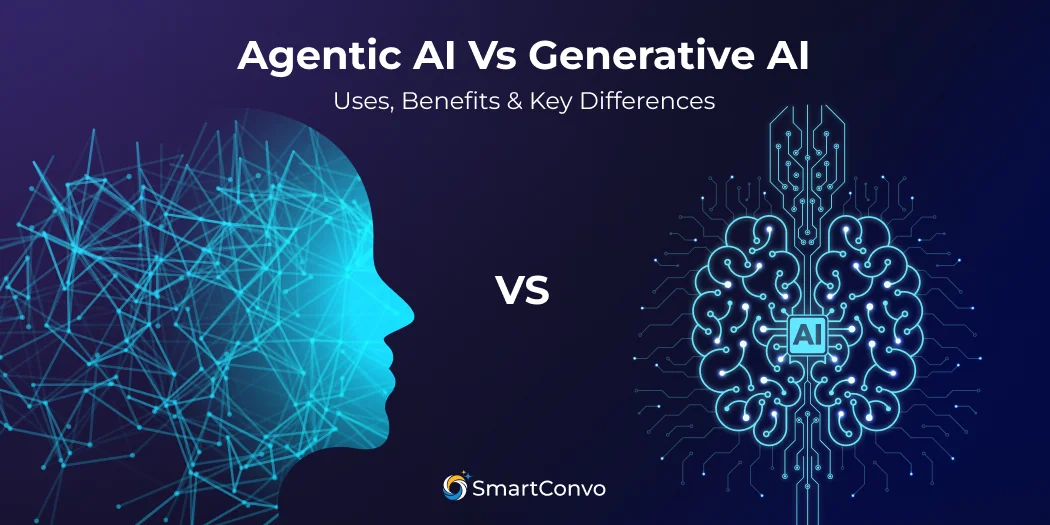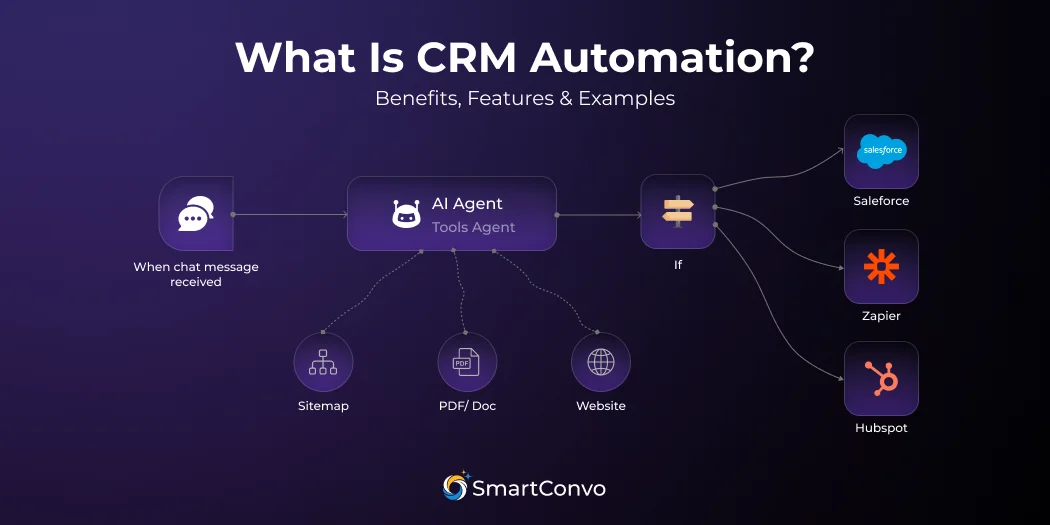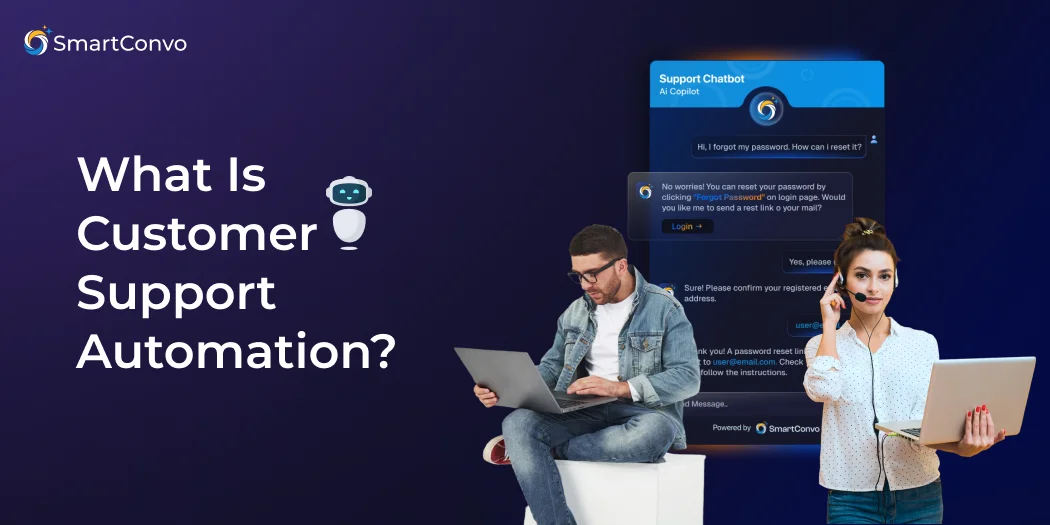Conversational AI has rapidly transformed the way businesses interact with their customers. From streamlining workflows to enhancing customer experiences, its applications span industries, proving to be an essential tool in the modern business landscape.
But what is an example of conversational artificial intelligence in practice? And how can it help businesses like yours thrive? This guide explores the technology behind conversational AI, its main features, and provides ten compelling conversational AI use cases from various industries. Whether you’re a business owner, a marketing professional, or a tech enthusiast, you’ll find actionable insights here.
What is Conversational AI?
Conversational AI refers to technologies that empower machines to simulate conversations with humans. It uses a combination of natural language processing (NLP), machine learning (ML), and natural language understanding (NLU) to comprehend, process, and respond to text or voice inputs in a human-like manner.
This means machines can interpret queries, provide relevant information, and even engage in meaningful exchanges—making conversational AI an invaluable tool to improve efficiency and user experiences.
Types of Conversational AI
Different applications of conversational AI aim to fulfil specific roles. Common types include:
- AI-Powered Chatbots: Designed to answer questions and assist users in real time, AI chatbots are widely deployed in industries like e-commerce and banking.
- Voice Assistants: Applications like Siri, Alexa, and Google Assistant are popular conversational AI chatbot examples that understand voice commands and execute tasks.
- Virtual Agents: Conversational system examples showcase how these sophisticated systems take customer service automation to the next level by handling complex queries with a combination of human-like understanding and advanced knowledge bases.
- Voice Bots: Voice bots are instrumental in contact centres, automating routine customer interactions to provide faster resolutions.
How Does Conversational AI Work?
Conversational AI uses advanced algorithms to process spoken or written language. Here’s a simplified breakdown of the technologies behind it:
- Natural Language Processing (NLP) deciphers the user’s intent by breaking down sentences and interpreting meaning.
- Machine Learning (ML) empowers the system to improve responses over time.
- Natural Language Understanding (NLU) analyses context and sentiment, enabling more accurate and empathetic interactions.
Now that we understand the foundation, let’s explore where the top 10 conversational AI solutions thrive across various sectors.
Top 10 Examples of Conversational AI in Multiple Industries

1. Conversational AI in Healthcare
Healthcare providers implement conversational AI as virtual health assistants for tasks like appointment scheduling, prescription reminders, and providing basic symptom analyses. For example, Babylon Health provides healthcare support accessible to patients anytime.
2. Conversational AI in Retail
Retailers apply AI for business to streamline operations and offer tailored shopping experiences. AI-driven virtual agents identify customer preferences to recommend products, collect feedback, and ensure faster checkout processes.
3. Conversational AI in Hospitality
Hotels integrate AI into booking engines to automate reservations, assist travellers with recommendations, and expedite check-ins. For example, Hilton Hotels use “Connie,” their AI concierge, to answer guest inquiries and deliver tailored guest experiences.
4. Conversational AI in E-Commerce
E-commerce businesses use sales chatbot powered by conversational AI to simplify sales and improve customer support. These AI-driven chatbots assist users in product discovery, provide recommendations, track orders, and handle returns seamlessly. For instance, chatbots integrated into platforms like Shopify or Magento drive personalized customer experiences.
5. Conversational AI in Education
Educational institutions are adopting conversational AI-based virtual tutors or assistants for interactive learning. AI tools like Duolingo teach new languages conversationally, while chatbots offer administrative support such as enrolment assistance or exam reminders.
6. Conversational AI in Travel
Travel agencies use conversational AI applications to simplify booking processes, supply itinerary updates, or address travellers’ concerns. Virtual agents from platforms such as Skyscanner are trusted conversational AI examples in helping users source affordable tickets and ideal travel plans.
7. Conversational AI in Customer Support
Businesses widely use conversational AI in contact centres to improve efficiency and scale customer service. It enables live agents to focus on high-value queries while virtual agents or chatbots handle routine FAQs, order status updates, and troubleshooting.
8. Conversational AI in Banking and Finance
The financial industry leverages AI chatbots for HR case management systems, fraud detection, customer queries, and account management. Popular apps like Erica by Bank of America are conversational AI examples enabling users to check balances, track spending, and pay bills—all by sending a simple message.
9. Conversational AI in Real Estate
Conversational AI in real estate offers robust solutions for property inquiries, booking site visits, and answering buyer questions. Companies integrate chatbots into property marketplaces to make the buying or renting process quicker and easier.
10. Conversational AI in Recruitment & HR
HR departments have seen immense benefits from conversational AI. AI for business recruiting aids candidate screenings via conversation simulations, and HR chatbot for employee engagement answer policy-related queries in real-time. This technology simplifies HR managers’ workflows while improving employee satisfaction.
Benefits of Implementing Conversational AI in Contact Centers

Conversational AI in contact centers delivers operational improvements and customer satisfaction through features such as:
1. Omnichannel Communication:
AI solutions like LLM chatbots allow interaction across platforms like WhatsApp, email, and social channels.
2. Round-the-Clock Accessibility:
AI assistants ensure 24/7 availability, enabling customers to get answers at their convenience.
3. Faster Resolution:
Automating repetitive queries helps deliver instant solutions while prioritising complex issues for human agents.
4. Lower Agent Burnout:
By handling routine requests, AI reduces the stress on human agents, improving morale.
5. Scalability:
Whether you’re a start-up or an enterprise, conversational AI can scale to meet customer demands without requiring extra resources.
No Credit Card Required | 14 days Free Trial
Build Your Chatbot
Conclusion
Conversational AI is not just an emerging trend, it’s a pivotal technology revolutionising modern business operations. From retail to education, the benefits of AI chatbots and virtual assistants have proven their value through enhanced efficiency, better user experiences, and lower operating costs.
For businesses aiming to stay ahead, mastering conversational AI is crucial. The conversational AI industry is evolving rapidly, and companies should start by integrating conversational AI solutions tailored to their industry. Whether it’s enhancing customer interactions or simplifying HR knowledge management, this technology is ready to redefine how companies operate.
Inspired to explore conversational AI further? Experiment and create unique conversational AI applications using tools like a large language model (LLM) chatbot or connect with our knowledge base for HR tools.
Frequently Asked Questions (FAQ)
Conversational AI empowers machines to simulate human-like conversations via text or voice using NLP, NLU, and ML.
Conversational AI examples include e-commerce chatbots providing personalised recommendations or voice assistants like Siri.
The benefits of AI chatbots include round-the-clock accessibility, reduced human workload, lower operational costs, and improved customer engagement.
Conversational AI enables tasks like customer service automation, lead generation, personalised marketing, and operational efficiencies across various industries.
Costs vary based on the complexity of the AI system, from affordable AI chatbot tools for small businesses to enterprise-grade virtual agents.













